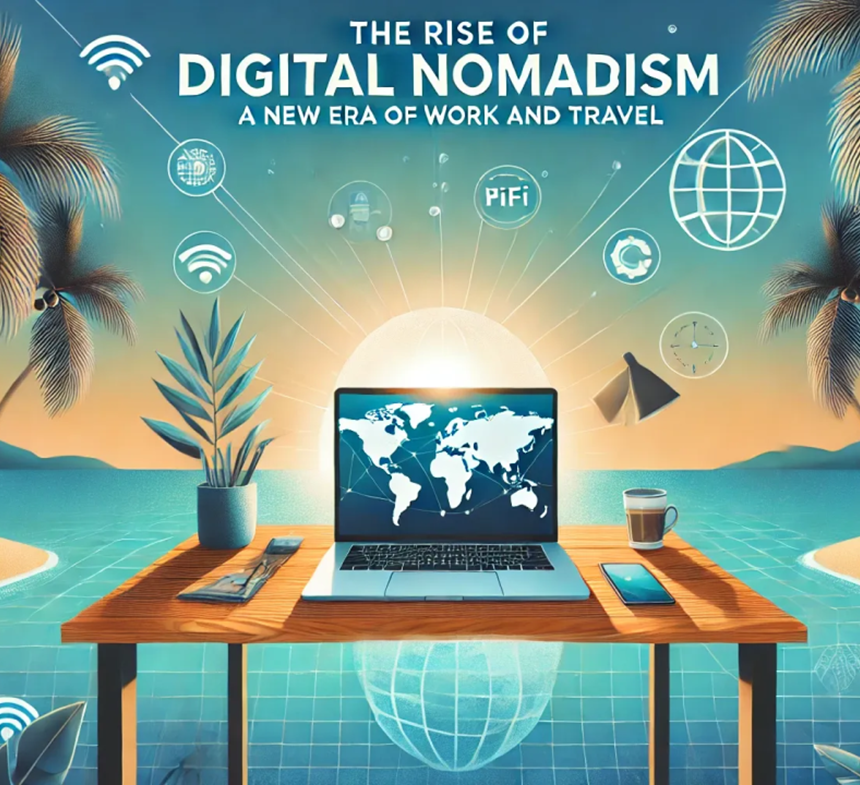The pandemic didn’t just change how we sanitize our hands—it flipped the work world on its head. Remote work is now the norm, and while some companies are clinging to hybrid schedules, the genie of location independence is out of the bottle.
More and more people are trading the monotony of office desks for the thrill of working from wherever their heart (and Wi-Fi) leads them. And some of these adventurous souls are embracing full-blown digital nomadism, transforming the world into their office. In fact, a recent MBO Partners report estimates that a jaw-dropping one billion people worldwide could call themselves digital nomads by 2023.
Now, not everyone’s becoming a globe-trotting wanderer, hopping from city to city every month. Some might spend a few months each year working by the beach or in a bustling coworking hub like Pattaya, Thailand, while others settle down for years on digital nomad visas. Whatever the flavor of their journey, these digital drifters are rewriting the script on how we work and live.
Here are my crystal ball predictions for how digital nomads will shape our future:
Forget the usual suspects like London and New York. Digital nomads are putting smaller, more vibrant cities on the map. Sure, affordable living is a major draw, but these hubs—think Bali, Chiang Mai, Lisbon, Tbilisi, Medellin, and yes, Pattaya—also offer killer Wi-Fi, buzzing communities, and a lifestyle that feels more “vacay” than “workday.”
Expect more governments to roll out the red carpet, tweaking visas and boosting infrastructure to woo these high-spending globetrotters. Move over, Big Apple—here comes a pineapple smoothie in paradise!
Companies are already embracing remote-first policies, but managing globe-trotting employees? That’s a whole different ball game. As businesses realize they can’t attract top talent with outdated rules, they’ll invest in tax compliance systems and “work-from-anywhere” policies. The result? A world where being stuck in one place is as outdated as dial-up internet.
Countries want a piece of the digital nomad pie, and that means rolling out more tailored visas. But there’s a catch: the price tag for entry is going up. Thailand’s digital nomad visa, for instance, demands an $80,000 annual income. Meanwhile, lower-paid remote workers might face the tough reality of being edged out. On the flip side, visa conditions will get clearer, ironing out tax and social security wrinkles.
Coworking spaces are no longer just about hot desks and strong coffee. The next wave? Spaces that double as creative havens—think podcasting studios, meditation rooms, and networking events. These hubs won’t just be workplaces; they’ll be communities where digital nomads can thrive, connect, and occasionally squeeze in a yoga session before deadlines.
Pattaya, for example, is stepping up as a rising coworking contender. With affordable digs, tropical vibes, and spaces catering to digital nomads’ every whim, it’s becoming a must-visit for those working from paradise.
Nomads flocking to hotspots mean central neighborhoods turning into short-term rental zones. While this boosts local economies, it also pushes locals out. Expect governments to juggle policies that balance attracting nomads while keeping housing affordable. Meanwhile, nomads themselves might ditch the traditional dream of homeownership for a more minimalist, experience-driven lifestyle.
Digital nomads aren’t just changing where we work—they’re transforming how we work. Flexible hours, jobs with purpose, and contracts focused on results rather than time clocks are becoming the new gold standard. Add in wellness perks like standing desks, outdoor workspaces, and longer vacation policies, and you’ve got a work-life balance revolution.
Even the U.S. might feel the pressure to up its game—because 10 vacation days a year just isn’t cutting it anymore.
Sure, life as a digital nomad sounds dreamy, but it can get lonely without your squad nearby. With more studies diving into the mental health challenges of isolation, we’ll see an uptick in resources like mentorship programs, support groups, and community-driven coworking spaces. These solutions won’t just help nomads but anyone feeling adrift, from new parents to solo remote workers.
Digital nomadism isn’t just a lifestyle—it’s a movement reshaping economies, cultures, and workplaces. As this trend goes mainstream, it’ll spark conversations about everything from affordable housing to global tax laws to what a fulfilling life really looks like.
So, grab your laptop, book that flight, and join the revolution. The world’s your office—where will you clock in next?
